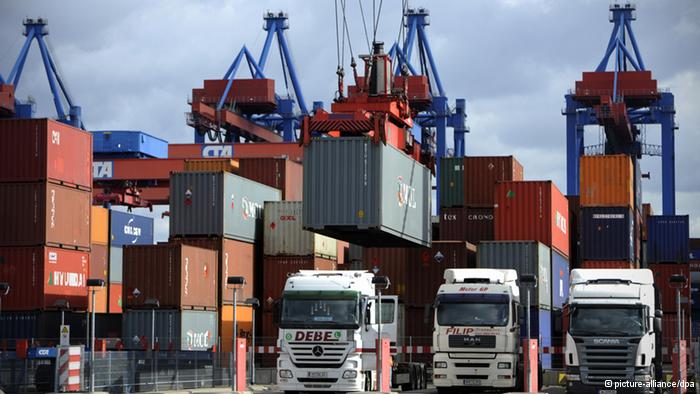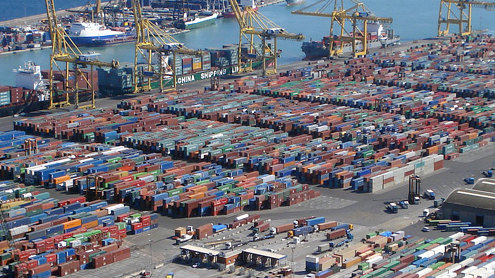ENVER ERKAN, TERA YATIRIM >> TÜİK’in Ticaret Bakanlığı işbirliğiyle oluşturarak açıkladığı Kasım ayı GTS (Genel ticaret sistemi) dış ticaret verilerine göre; Türkiye’nin ihracatı 2020 yılının Kasım ayında bir önceki yılın aynı dönemine göre %0,9 azalarak 16,09 milyar USD olurken, aynı dönemde ithalat %15,9 artarak 21,13 milyar USD olarak gerçekleşmiştir. Böylece dış ticaret açığı, Kasım 2019 – Kasım 2020 dönemleri arasında %153,5 artmış ve 5,03 milyar USD olmuştur. İhracatın ithalatı karşılama oranı ise söz konusu dönemde %89,1’den %76,2’ye gerilemiştir.
Kasım ayında içerisinde en çok ihracat yaptığımız ülke Almanya olurken, onu İngiltere, Irak ve ABD etmektedir. Avrupa Birliği’ni oluşturan 27 ülkeye ihracat %1,4 azalarak 6,66 milyar USD olurken, AB’nin toplam ihracatımız içindeki payının %41,6’dan %41,4’e yükseldiği görülmektedir. İthalat kalemlerinde; Kasım 2020’de ilk sırayı Almanya alırken, onu Çin, Rusya ve İsviçre izlemiştir. Kasım ayında sermaye ve tüketim mallarının toplam ithalat içindeki payı artarken, ara (ham madde) mallarının payı azalmıştır. Yüksek teknolojili ürünlerin ihracatının toplam ihracatımız içindeki payı %3,3 olurken, aynı grubun ithalatının toplam ithalatımız içerisindeki payı ise %12 olmuştur.

ÖTS’ye (Özel ticaret sistemi) göre, Türkiye’nin ihracatı 2020 yılının Kasım ayında bir önceki yılın aynı dönemine göre %0,9 azalarak 15,31 milyar USD olurken, aynı dönemde ithalat %11,9 artarak 19,85 milyar USD olarak gerçekleşmiştir. İhracatın ithalatı karşılama oranı ise söz konusu dönemde %77,1 olmuştur.
İhracat, ithalat ve dış ticaret dengesi, Kasım 2020… Kaynak: TÜİK, Ticaret Bakanlığı, Bloomberg
Ocak – Kasım ticaret açığı %82,5 artarak 45,3 milyar USD’ye ulaştı. Koronavirüs salgını önemli pazarlarda talebin zayıf kalmasına neden olmakta ve buna bağlı olarak ihracat zayıf eğilim göstermektedir. Güçlü altın talebinin ithalatı artırması nedeniyle de, dış ticaret açığı genişlemiştir. Kasım ayında da 21,1 milyar USD’lik toplam ithalatının 2,66 milyar USD’lik kısmı altın ithalatından gelmiştir, bu kalemde geçen yılın %59’luk artış görülmektedir. Pandemi dönemindeki korunma ihtiyacı, 3Ç20 döneminde lokal para birimindeki zayıflık çerçevesinde enflasyon korunma güdüsüyle oluşan yatırım tercihlerinden de kaynaklanmaktadır. Bu dönemde tasarrufların döviz ve altında tutulma eğilimi artmıştır. Yurtiçinde uygulanan yeni politikaların etkisi, altın ithalatını yavaşlatacaktır.
İç talepteki kısıtlama ithalat artışını azaltma potansiyeline sahip olsa da, Covid-19 salgını ve küresel ticaretteki zayıf trendler nedeniyle dış talep görünümünün kırılgan olmasını ve bu da ihracattaki toparlanmayı sınırlayacak. İlk çeyrekte hissedilen salgın etkilerinden sonra aşılamanın etkileriyle küresel ekonominin normalleşme sürecinin küresel pazarlardaki talep toparlanmasına etkisini ihracat için izleyeceğiz.
Foreign trade deficit widens in November with increasing gold imports …

According to the GTS (General Trade System) foreign trade data of November, which was announced by TURKSTAT in cooperation with the Ministry of Trade; Turkey’s exports in November 2020 decreased by 0.9% compared to the same period of the previous year to USD 16.09 billion, while imports increased by 15.9% in the same period amounted to 21.13 billion USD. Thus, the foreign trade deficit increased by 153.5% between November 2019 – November 2020 and reached 5.03 billion USD. The ratio of exports to imports declined from 89.1% to 76.2% in the said period.
In November, the country to which we export the most was Germany, followed by England, Iraq and the USA. While exports to 27 countries that make up the European Union decreased by 1.4% to 6.66 billion USD, it is seen that the share of the EU in our total exports increased from 41.6% to 41.4%. In import items; Germany took the first place in November 2020, followed by China, Russia and Switzerland. In November, the share of capital and consumption goods in total imports increased, while the share of intermediate (raw materials) goods decreased. While the share of high-tech exports in our total exports was 3.3%, the share of imports of the same group in our total imports was 12%.
According to STS (Special trading system), Turkey’s exports decreased by 0.9% in November 2020 compared to the same period of the previous year to USD 15.31 billion USD, while imports increased by 11.9% in the same period to USD 18.72 billion. The ratio of exports to imports was 77.1% in the said period.
January-November trade deficit increased by 82.5% to 45.3 billion USD. The coronavirus epidemic causes weak demand in key markets, and accordingly, exports show a weak trend. As the strong gold demand increased imports, the foreign trade deficit widened. In November, 2.66 billion USD of 21.1 billion USD of total imports came from gold imports, this item increased by 59% last year. The need for protection during the pandemic period also stems from the investment preferences created with the inflation protection motive in the framework of the weakness in the local currency in the 3Q20 period. During this period, the tendency to keep savings in foreign currency and gold increased. The effect of new domestic economic policies will slow down gold imports.

Although the restriction in domestic demand has the potential to dampen import growth, the outlook for external demand will be fragile due to the Covid-19 outbreak and weak trends in global trade, which will limit the recovery in exports. After the epidemic effects felt in the first quarter, we will monitor the impact of the normalization process of the global economy on the recovery of demand in global markets for exports.
sitesinden daha fazla şey keşfedin
Subscribe to get the latest posts sent to your email.
